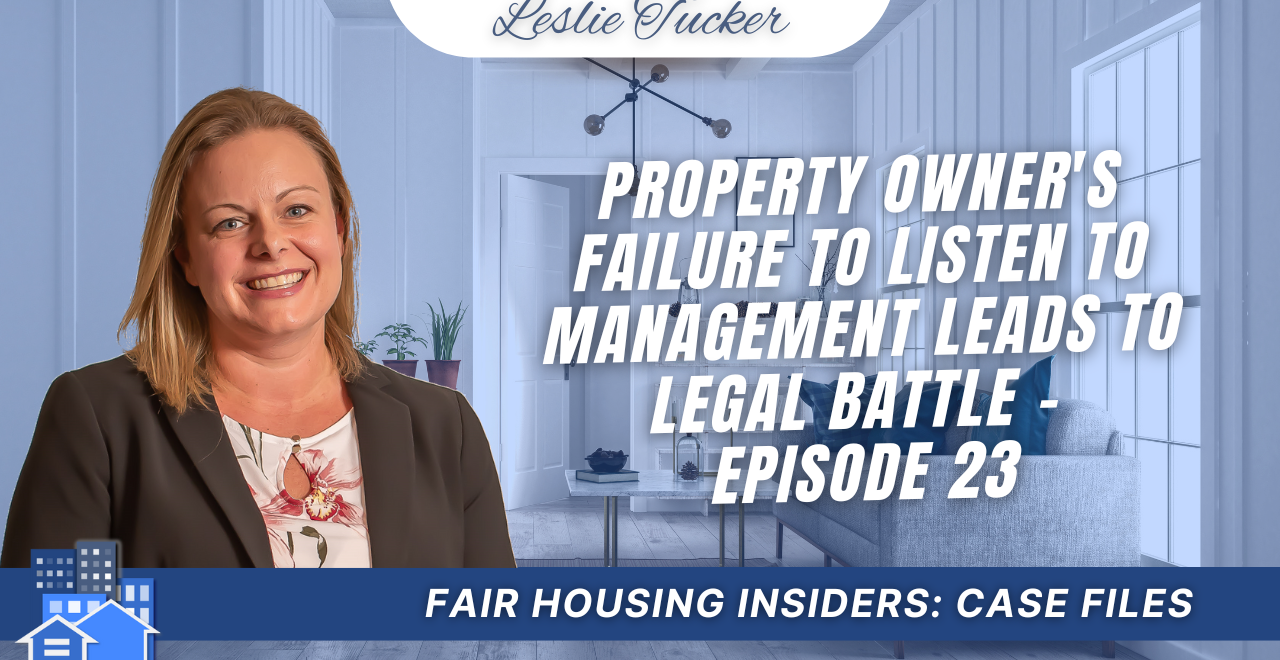Dive into the murky waters of property management disputes, with this case involving a dramatic confrontation over a service dog. This case puts a property management team to the test when the property owner tries to take matters into their own hands resulting in a fair housing investigation. Find out what happens when a property owner fails to listen to management.
Complaint – United States v. Ruredy808, LLC, et al. (N.D. Miss.)
Key Events and Legal Implications
This situation involves a college student with disabilities who required a service dog to assist with his seizures and panic attacks. Despite having his service animal included in his lease with the approval of his property management company, the property owner intervened, demanding the removal of the dog from the premises. This action blatantly disregarded the advice of both the property management’s legal counsel and the Fair Housing Act’s requirements regarding assistance animals.
The property owner’s decision to bypass management advice and directly challenge the tenant’s need for the service animal led to a series of legal confrontations. The owner allegedly not only demanded the dog’s removal but also sought to impose undue financial burdens on the tenant, such as covering attorney fees and the cost of replacing the apartment’s carpeting. When the tenant resisted these demands, the owner allegedly initiated eviction proceedings, which were later dismissed, albeit under unclear circumstances.
This case escalated to a HUD investigation, which found probable cause for a fair housing violation, resulting in a lawsuit that eventually settled. The settlement imposed significant requirements on the owner, should they continue in the rental property industry. These requirements included strict guidelines on how to handle advertising and respond to requests for reasonable accommodations. If monetary damages were agreed to, they were included in a private agreement that is not publicly available.
Management’s Prudent Decision
Interestingly, the property management company was not named in the lawsuit, a deviation from the norm in fair housing cases. This was likely due to their decision to sever ties with the property owner after recognizing the legal risks associated with the owner’s demands. By consulting their attorney and choosing to terminate their management contract, the company effectively distanced itself from potential legal liabilities, demonstrating a proactive approach to compliance and ethical management.
Lessons for the Property Management Community
This case serves as a critical reminder of the responsibilities that property managers and property owners have under the Fair Housing Act. Once an assistance animal is approved, later questioning the legitimacy of the approval can lead to legal challenges and accusations of discrimination. While there may be certain circumstances that warrant follow-up questions, management should approach these situations carefully.
Additionally, this dispute illustrates the importance of following advice from legal counsel and understanding the framework within which property management operates. The management company’s decision to remove itself from a non-compliant owner’s directives likely spared it from greater legal entanglements and public relations issues.
This situation not only serves as a reminder of the legal and ethical standards that govern our industry but also highlights the profound impact these laws have on individuals’ lives.
You May Also Like:
- Case Files: When HUD Pulled the Plug on Fair Housing Grants – Episode 41
- Case Files: United States v. Airbnb – Episode 40
- Case Files: New Landlord, New Rules…But Are They Legal? – Episode 38
- Case Files: Building Code Barriers – Episode 39
- Case Files: Excessive ESA Documentation and Fees – Episode 36

